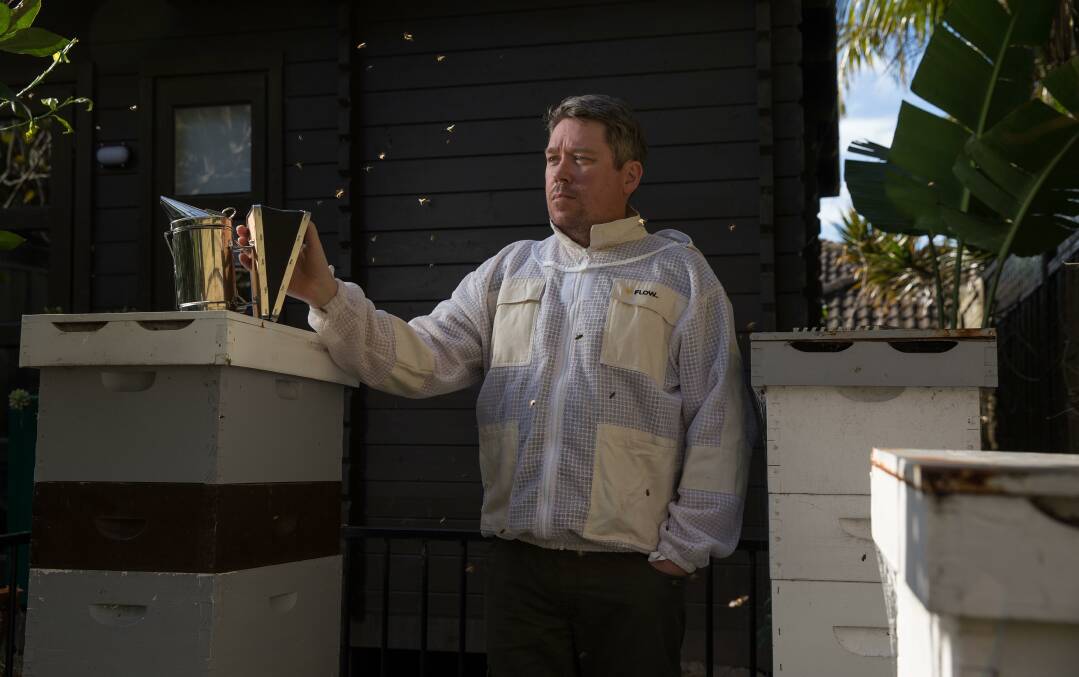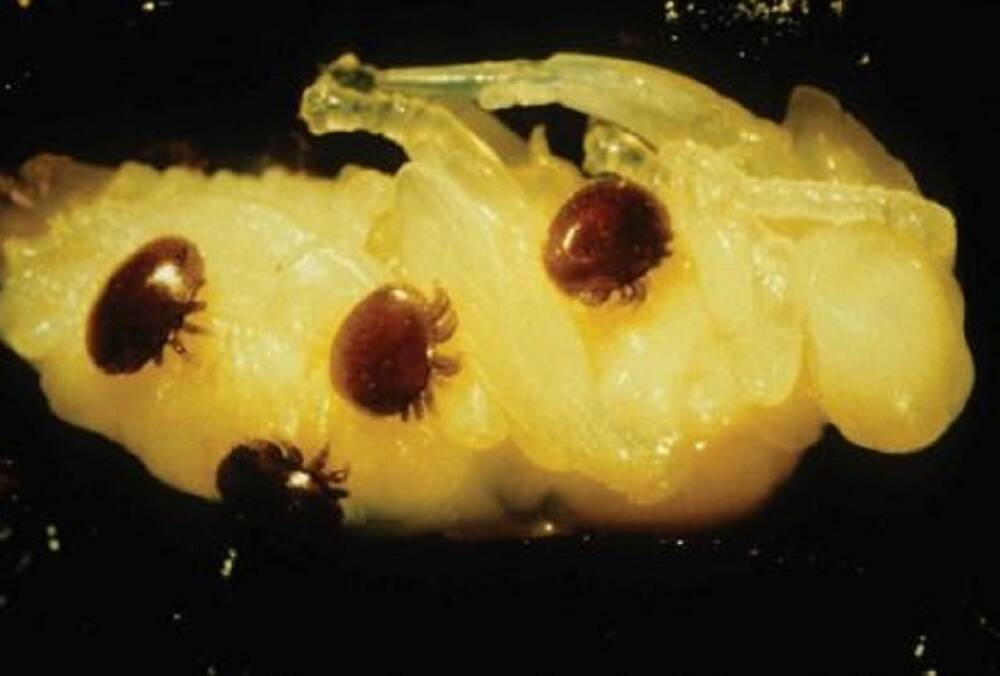THE NSW government has begun euthanising bees in the Newcastle area after the deadly parasite mite Varroa destructor was found in the Port of Newcastle last Wednesday.
A statewide emergency order will start at 6pm today (Sunday) taking control of all beehives across NSW.
The statewide freeze replaces an earlier 50-kilometre "biosecurity zone" that included in it a 10-kilometre "red" zone that various bee industry figures said would result in the killing of all hives in that radius.

In a statement late yesterday the NSW Department of Primary Industries (DPI) said the 10-kilometre "emergency zone remains in place", with "eradication plans" to "treat hives within that zone".
DPI said a 25-kilometre "surveillance" zone was also in place, with state and federal authorities to "treat" hives within that area.
DPI said Varroa had been found in two of the six "sentinel" or detection hives set up around the port as part of the state's biosecurity system.
All six hives had been euthanised by yesterday afternoon, along with three hives on "nearby" property, while tracing was undertaken at a "fourth property within the original eradication zone".
Commercial and amateur beekeepers can have hives spread across a considerable area and DPI said one beekeeper had moved hives between Newcastle and Trangie, 450 kilometres west of Newcastle along the Golden Highway.
No Varroa was detected at Trangie but hives 'will be eradicated to minimise risk".
NSW Agriculture Minister Dugald Saunders said varroa could cost the industry $70 million a year if it became established here.
Acting CEO of the Australian Honey Bee Industry Council, Danny Le Fouvre, said another species, Varroa jacobsoni, had been found at the Port of Melbourne in 2018 and on various occasions in Townsville, but this was the first time the more worrying Varroa destructor had been found in Australia - the last continent (apart from Antarctica) to remain Varroa-free.
Mr Le Fouvre and various Hunter region beekeepers confirmed the broader 50-kilometre zone was broken into three parts, starting with the 10-kilometre "euthanasia zone".
Nick Radford, an amateur beekeeper from Merewether who has some of his 21 hives within the 10-kilometre zone, said that although he and other beekeepers would be distressed at the loss of the bees, they realised the seriousness of the situation, and the need to keep Australia Varroa-free if possible.
Williamtown beekeeper David Vial said some of his 300 or so hives were within the 10-kilometre zone, and estimated that there could be thousands of affected hives all up.
A past president of the Hunter Valley Amateur Beekeepers Association, Mr Vial described the arrival of Varroa as "heartbreaking" but said urgent action was needed, all the more so because the annual almond industry pollination was set to start in the coming four to six weeks.
He said the almond pollination was the "largest livestock movement in the country", and the trucking of thousands of hives up and down the eastern states was an event that was almost ready-made to spread Varroa if it was not stopped at Newcastle.
Mr Le Fouvre said beekeepers would be compensated for the loss of their hives, with commercial operators eligible for a Commonwealth scheme, and recreational beekeepers covered by a state scheme.
Mr Le Fouvre said the Varroa mites were found last Wednesday in "a couple" of six "sentinel" hives that had been placed at various sites around the port to monitor for the arrival of such pests.
The mites were found on "sticky mats" placed in the hives to trap such external parasites as they fall off the bodies of returning bees.
He said bees were exported from Australia, but not imported into the country, and while the exact method of arrival remained unclear, it was likely that the mite arrived in Newcastle in a "feral" beehive aboard a cargo ship.
He said the mites had been sent for molecular testing to try to work out where they had come from, and he said it was too early to say from the numbers of mites that had been discovered how long they had been present in the sentinel hives.
Varroa mites are considered the greatest threat to bees worldwide, and Mr Le Fouvre said that if established, they typically led to a mortality rate of 20 per cent to 30 per cent in managed hives, where bees could be treated to ward off the parasite.
He said the toll on "feral" hives in the wild was typically much higher, at about 90 per cent.
(The bee industry refers to "wild" hives of European honeybees, Apis mellifera, to distinguish them from colonies of "native" bees, of which there are about 1700 species. Varroa is not seen as a threat to native bees.)
Beekeepers are registered with the NSW government and various hive owners said they had been contacted about by the Varroa presence by the Department of Primary Industries (DPI).
The agriculture minister, Mr Saunders, said sentinel hives were set up at strategic locations around airports and water ports, and without "diligent monitoring, this threat may have gone undetected".
Mr Saunders urged Hunter Region beekeepers who had not already done so to contact DPI on 1800 084 881 or to contact the department online.
Mr Vial said the Hunter Valley beekeepers association was due to meet on Tuesday night but that this may be cancelled in favour of an emergency Varroa information meeting organised by the DPI.





.jpg?w=600)


